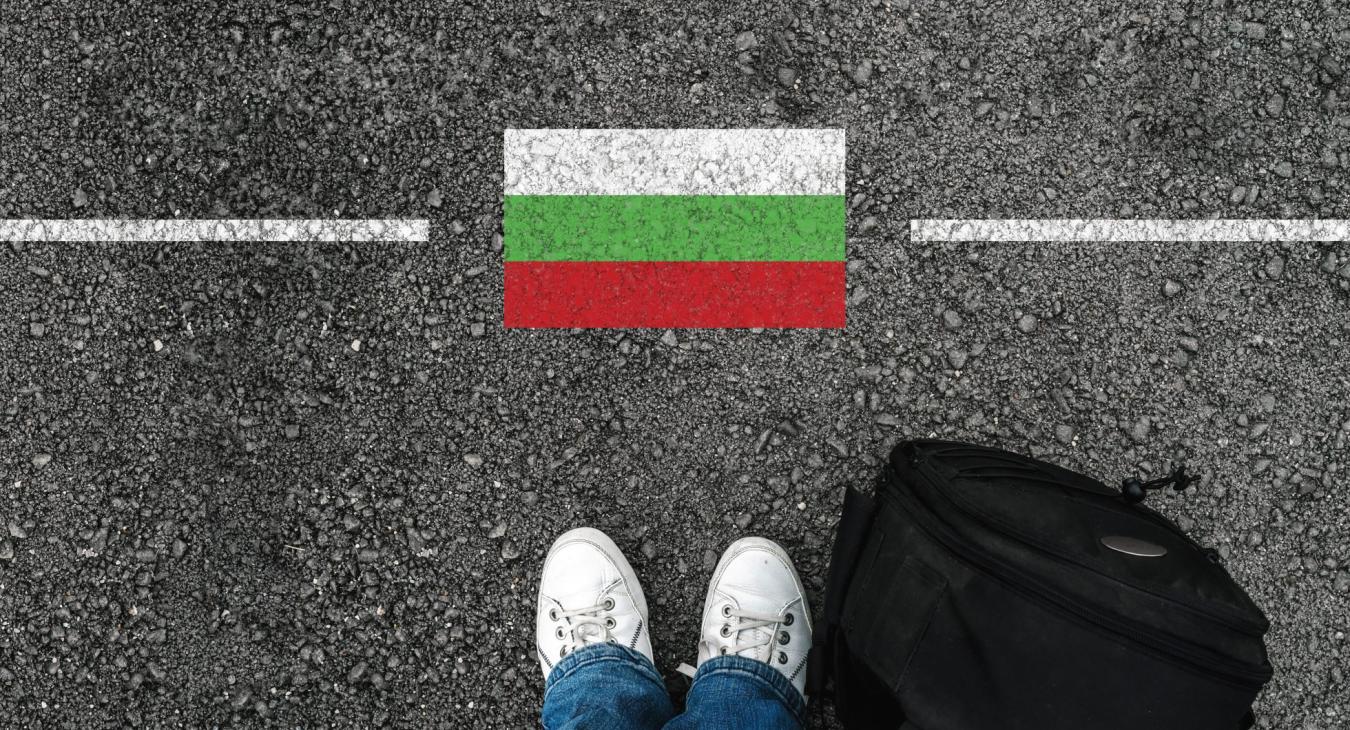Information was last updated on 26.05.2023
As an asylum-seeker, you are in an extremely vulnerable position and at particular risk of becoming a victim of human trafficking. This could happen anywhere and anytime – on your journey, in your destination country, or even in a formal refugee reception and accommodation center.
Victims of human trafficking
Anyone can fall victim to human trafficking – men, women and children. You are in a situation of human trafficking if another person is transporting you illegally from one country to another or from one region to another to force you into labor, begging, sexual exploitation, forced marriage, organ removal or committing crimes. You are considered a victim of human trafficking, even if you consented to the transportation at the beginning.
There is a difference between human trafficking and smuggling. Smuggling refers to assisting the illegal entry of a person into a country to obtain financial or other material benefits.
Recognizing the danger
You should be cautious of people who:
Offer you a job, love or future opportunities
Try to separate your family, especially the underage members
Try to take advantage of children and teenagers, especially if they seem unprotected
Try to take away your personal/travel document or your phone
Offer to help you with your travel, accommodation or a job during your journey or once you have reached your destination.
Try to convince you that you owe them money for different reasons
Seeking help
If you think you are in a situation of human trafficking or if someone is threatening you and making suspicious offers to you, don’t hesitate to inform someone you trust.
Call:
112 - the General Emergency Line
+35980020100 - the National Human Trafficking Resource Line. This line is free of charge and 24/7. You can also call this number if you are about to go on a brigade abroad and want someone to check that the job offer is safe.
+35980018676 - the National Hotline for Victims of Violence, which is free of charge and 24/7.
+ 359 2 807 80 50 - National Commission for Combating Human Trafficking, working hours: from Monday to Friday, from 9:00 to 17:30.
The staff speak Bulgarian and English.
Learn more:
Assistance to human trafficking survivors
There are different centers for protection and support of survivors of human trafficking, managed either by non-profit organizations or by the state. Some examples of such centers, managed by NGOs are:
The National Commission for Combating Human Trafficking is the state authority responsible for assisting survivors of human trafficking in Bulgaria. You can contact the Commission to be re-directed to an appropriate service or centre at the following contacts:
Tel: 02 807 80 50
e-mail: [email protected].
Once accommodated in a shelter, you will get:
A safe environment
Food
Basic necessities
Medicines and assistance in addressing and solving health problems
Psychological support and assistance in coping with depression, fears and anxieties
An interpreter to assist you in your communication with the center’s personnel
Help with other obstacles
Information and consultations regarding the asylum procedure in Bulgaria
Protect yourself and your family
Your and your family’s safety is of the utmost importance and should always be a priority.
If you have any doubts about a person’s true intentions, it is always a good idea not to ignore your intuition and to cease all contact with them.
Do not shy away from sharing any concerns you might have with your family and friends and ask them for their opinion and advice.
Be careful who you trust, especially if this is someone whom you have recently met and who actively offers you support and assistance of any kind for no particular reason.
Be careful with people who quickly befriend you and shower you with attention, gifts and promises which seem too good to be true. Very often these might turn out to be people who will later try to sexually exploit a woman or a girl.
Be extremely wary of people who paint unrealistic pictures of what your life will be if you agree to do something for them in return.
Be on the lookout for signs of abusive or possessive behavior.
Keep your identification and travel documents with you at all times and, if asked, only show them to officials or aid workers who have already identified themselves to you.
Be wary of very attractive job offers.
Even when someone offers you a job and you feel confident that this is a genuine and safe offer, make sure you know the exact address and location where you will be working as well as the working hours and payment. Inform a family member or a friend.
Never sign a contract written in a language you don’t know or has unclear or general statements.
Travel together with people you know. Inform someone you know about the journey you are planning to take.
Stay close to your family and make sure you know where everyone is at all times. This goes especially for underage family members.
Be cautious with people who get in contact with you on the Internet by means of social media. This is a common way in which many human traffickers select their victims.
Never give your personal ID, address, phone number, name or information about your family members to strangers or people you met online and don’t know very well.
Never send pictures to people you just met online. Restrict the visibility options of your photos and the information you publish online to only close friends.
- Log in to post comments
